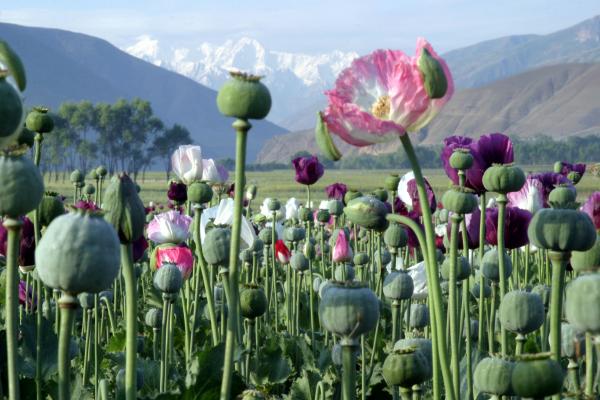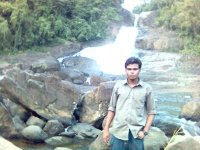Origin of the name
The first part of the name, "Afghan", appears in early scriptures and Ahmed Shah Durrani used the Afghan identity to unite the country. The ruling entity during the Durrani Empire were Pashtuns who were stretched from what is today Pakistan and Afghanistan. Due to majority being Pashtuns, the misconception that Afghans are only Pashtun has sometimes been propagated by neighboring countries, perhaps even at times to distort the history of Afghans. While it is true that all Pashtuns are Afghans because the region was encompassed by them during the Durrani Empire, the term Afghan refers to Tajiks, Uzbeks, Hazaras, Pashtun, Balochs and many other ethnic groups of Afghanistan. many used it as an alternative name for the Pashtuns who are the founders and the largest ethnic group of the country. Thus, every Pashtun is an Afghan by default of Abdali's empire But every Afghan is not a Pashtun. The term Afghan has been used as a name for the regions inhabitants since at least the Islamic period and onwards. In this regard the Encyclopædia Iranica states
From a more limited, ethnological point of view, "Afghān" is the term by which the Persian-speakers of Afghanistan (and the non-Paštō-speaking ethnic groups generally) designate the Paštūn. The equation [of] Afghan [and] Paštūn has been propagated all the more, both in and beyond Afghanistan, because the Paštūn tribal confederation is by far the most important in the country, numerically and politically. The term "Afghān" has probably designated the Paštūn since ancient times. Under the form Avagānā, this ethnic group is first mentioned by the Indian astronomer Varāha Mihira in the beginning of the 6th century CE in his Brihat-samhita.
According to W. K. Frazier Tyler, M. C. Gillet and several other scholars, the word "Afghan" first appears in the 982 AD Hudud-al-Alam, where a reference is made to an Afghan village.
Saul, a pleasant village on a mountain. In it live Afghans.
Al-Biruni referred to Afghans as various tribes living on the western frontier mountains of the Indus River, which would be the Sulaiman Mountains.[15] A Moroccan traveller, Ibn Battuta, visiting Kabul in 1333 writes:
We travelled on to Kabul, formerly a vast town, the site of which is now occupied by a village inhabited by a tribe of Persians called Afghans.
This information is supported by traditional Pashto literature, for example, in the writings of the 17th-century Pashto poet Khushal Khan Khattak:
Pull out your sword and slay any one, that says Pashtun and Afghan are not one! Arabs know this and so do Romans: Afghans are Pashtuns, Pashtuns are Afghans!
The last part of the name, -stān is an ancient Indo-Iranian suffix for "place", prominent in the regional languages. The name Afghānistān may come from the Sanskrit word Upaganasthan meaning 'land of the allied tribes'.[citation needed]
The term "Afghanistan," meaning the "Land of Afghans," was mentioned by the 16th century Mughal Emperor Babur in his memoirs, referring to the territories south of Kabul that were inhabited by Afghans.[18] Until the 19th century the name was only used for the traditional lands of the Pashtuns, while the kingdom as a whole was known as the Kingdom of Kabul, as mentioned by the British statesman and historian Mountstuart Elphinstone. Other parts of the country were at certain periods recognized as independent kingdoms, such as the Kingdom of Balkh in the late 18th and early 19th centuries. With the expansion and centralization of the country, Afghan authorities adopted and extended the name "Afghanistan" to the entire kingdom, after its English translation had already appeared in various treaties between the British Raj and Qajarid Persia, referring to the lands subject to the Pashtun Barakzai Dynasty of Kabul. "Afghanistan" as the name for the entire kingdom was mentioned in 1857 by Friedrich Engels. It became the official name when the country was recognized by the world community in 1919, after regaining full independence over its foreign affairs from the British, and was confirmed as such in the nation's 1923 constitution.
Geography

Afghanistan is a landlocked and mountainous country in South-Central Asia, with plains in the north and southwest. The highest point is Nowshak, at 7,485 m (24,557 ft) above sea level. The climate varies by region and tends to change quite rapidly. Large parts of the country are dry, and fresh water supplies are limited. The endorheic Sistan Basin is one of the driest regions in the world. Afghanistan has a continental climate with very harsh winters in the central highlands, the glacierized northeast (around Nuristan) and the Wakhan Corridor, where the average temperature in January is below -15°C, and hot summers in the low-lying areas of Sistan Basin of the southwest, the Jalalabad basin of the east, and the Turkistan plains along the Amu River of the north, where temperature averages over 35°C in July. The country is frequently subject to minor earthquakes, mainly in the northeast of Hindu Kush mountain areas. Some 125 villages were damaged and 4000 people killed by the May 31, 1998 earthquake
At 249,984 sq mi (647,500 km²), Afghanistan is the world's 41st-largest country (after Burma).
Tajikistan, Turkmenistan and Uzbekistan border Afghanistan to the north, Iran to the west, Pakistan to the south and the People's Republic of China to the east.
The country's natural resources include gold, silver, copper, zinc, and iron ore in the Southeast; precious and semi-precious stones (such as lapis, emerald, and azure) in the Northeast; and potentially significant petroleum and natural gas reserves in the North. The country also has uranium, coal, chromite, talc, barites, sulfur, lead, and salt. However, these significant mineral and energy resources remain largely untapped, due to the effects of the Soviet invasion and the subsequent civil war. Plans are under way to begin extracting them in the near future.

No comments:
Post a Comment